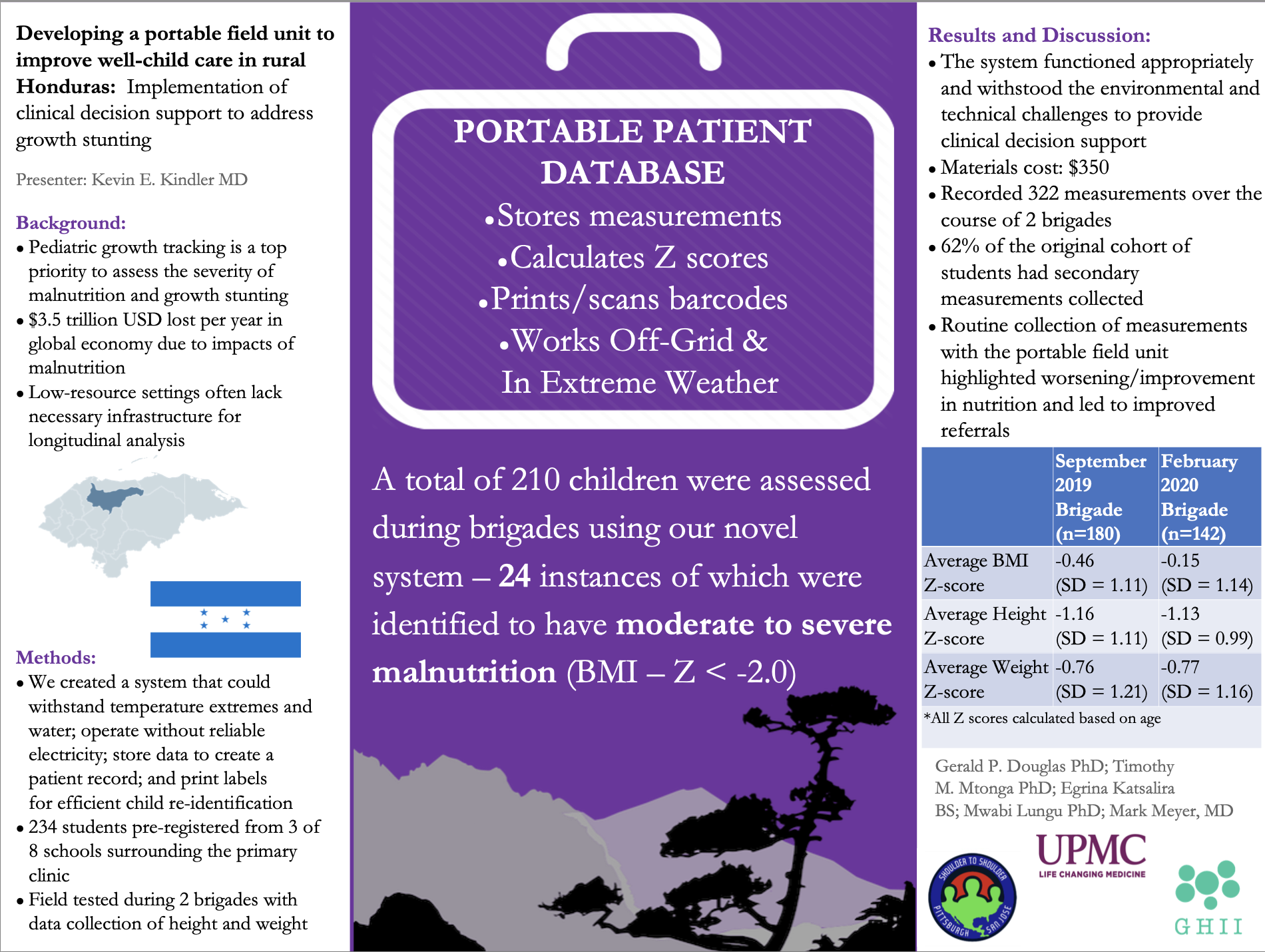Title: Developing a Portable Field Unit to Improve Well-Child Care in Rural Honduras: Implementing Clinical Decision Support to Address Growth Stunting
Authors: Kevin E. Kindler, MD; Tania C. Castillo, MD; Gerald P. Douglas, PhD; Egrina Katsalira, BS; Mwabi Lungu, BS; Mark Meyer, MD; Timothy M. Mtonga, PhD; James B. Newton, MD
Background:
Pediatric growth tracking has been identified as a top priority to assess the severity of malnutrition and growth stunting by international health agencies. However, remote low-resource settings often lack the necessary infrastructure for longitudinal analysis of growth for the purposes of early identification and intervention of growth stunting.
Methods:
To address this gap, we developed a portable field unit (PFU) capable of identifying a child on repeated visits, adding new anthropomorphic measurements with each encounter. The PFU had to operate without reliable AC power, withstand temperature extremes, and resist water damage. The CDC/WHO formulas for the calculation of Z-scores based on age, weight, and height were utilized to assess the nutrition status of each child, compared to standard growth charts. Data was collected from children at three schools chosen to pilot field testing, and all children present at the school were included in the system. During two brigades, the system was tested.
Results:
The PFU functioned as intended by reliably recording measurements, standing up to the weather, functioning without a continuous power source, and allowing for comparison of data collected on brigades. The system was used for two teams visiting three schools in the catchment area surrounding a medical clinic in rural San Jose, Honduras in which a total of 210 children were assessed, and 322 measurements were recorded. Analysis of this data through BMI calculations based on age identified 24 instances of moderate to severe malnutrition (BMI-Z < -2.0) with a combined average BMI-Z of -0.32. No previously measured baseline data was accessible for comparison of Z-scores calculated by the PFU or prevalence of malnutrition.
Conclusion:
This initial assessment suggests the PFU could be an effective means of identifying at-risk children.

